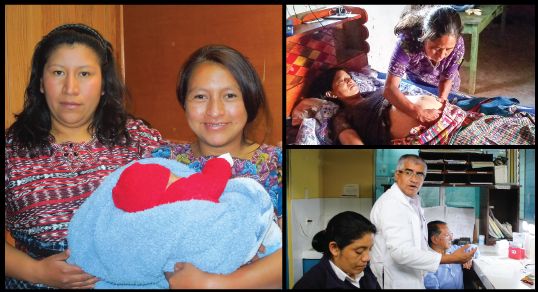Maternal, Newborn and Child Health (MNCH) in Guatemala: Transforming Indigenous Lives
Horizons of Friendship & the Association for Health Promotion, Research and Education present:
In Guatemala, Indigenous women are twice as likely to die during pregnancy or childbirth as non-Indigenous women, and Indigenous infants are two-thirds more likely to die than non-Indigenous infants. These disparities exist in a nation with significant coverage gaps for its rural, predominantly Indigenous population, making community-based primary care providers like Indigenous traditional birth attendants known as 'comadronas' essential in serving a population that has been historically and systematically discriminated against.

Horizons of Friendship, a Canadian NGO, and its local Guatemalan partner, the Association for Health Promotion, Research, and Education (PIES), embarked on a four-year, multi-million dollar project with support in part from Global Affairs Canada to reduce MNCH gaps for Indigenous peoples in Totonicapán, Guatemala. Totonicapán is a primarily Maya K’iche’ province with some of the poorest health indicators in the country. On Monday October 16, join Horizons at the University of Toronto to hear directly from comadronas receiving culturally relevant training and equipment through this project, as well as other Guatemalan health providers and leaders, and learn how this initiative is transforming Indigenous lives.
Register here
If you can't join us, please visit the webcast URL: http://uoftfamilymedicine.adobeconnect.com/mnchguatemala
